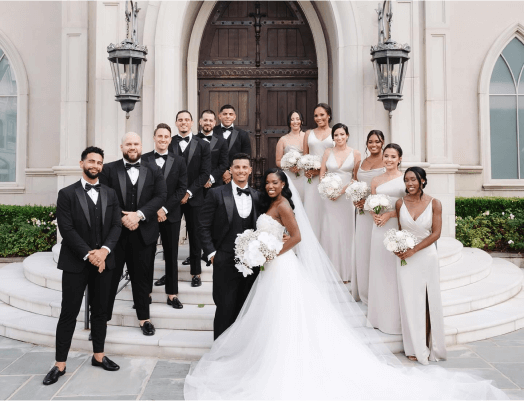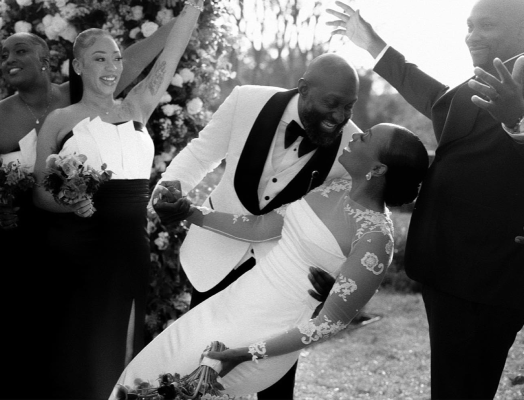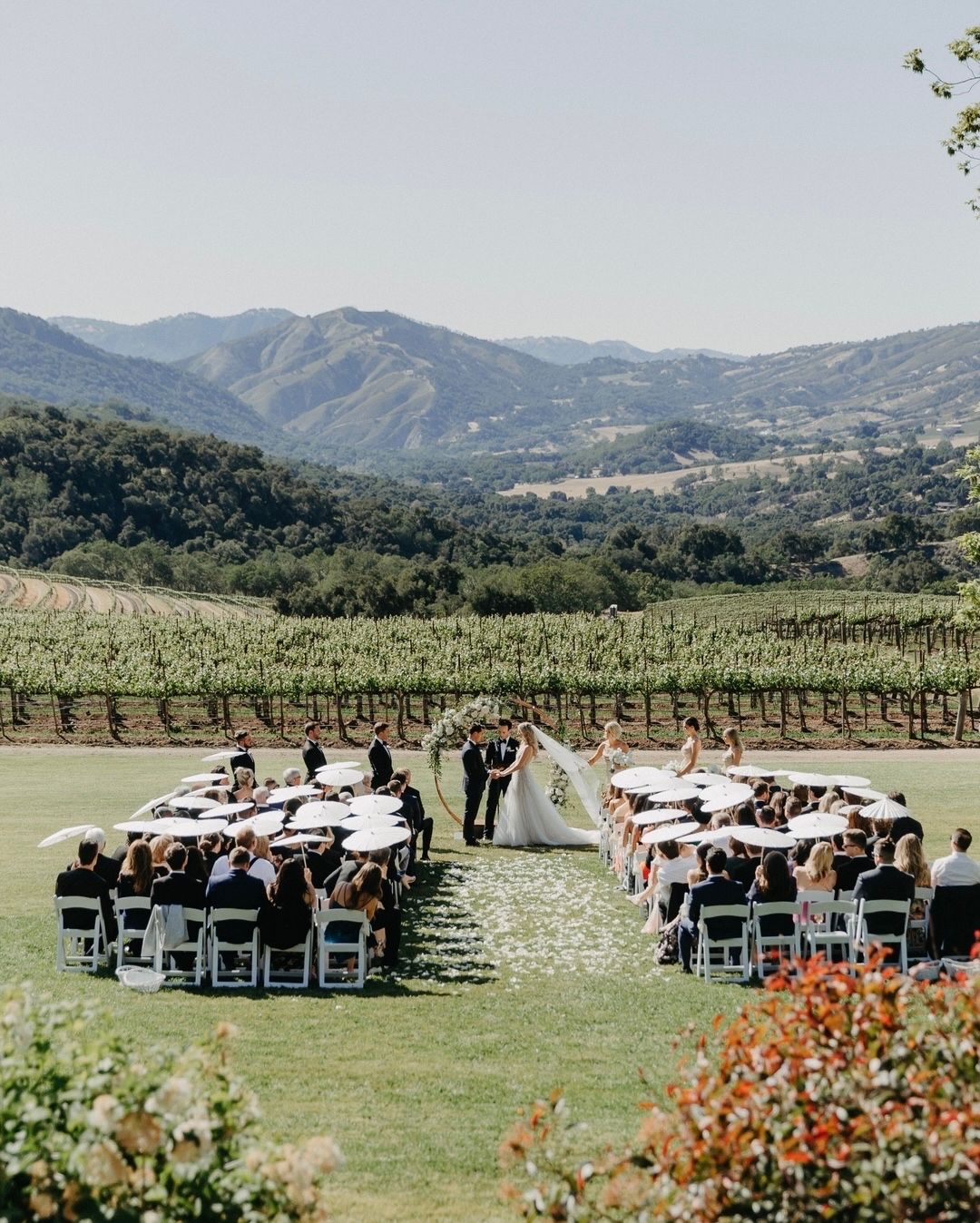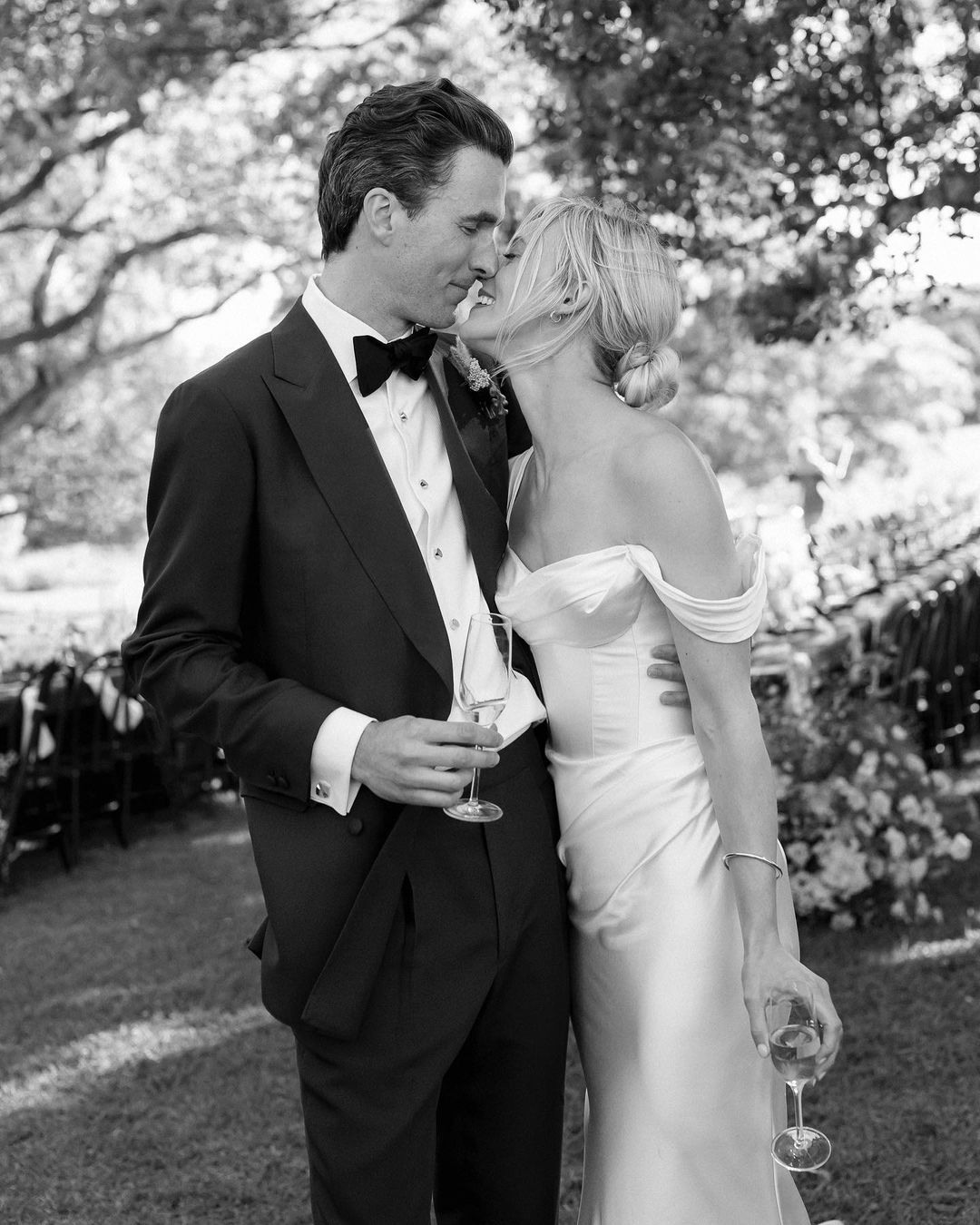When to Send Out Wedding Invitations
- Author: Natali Grace Levine
- Reading time: 8 min 17 sec
- Publication date: 07/18/2024
- Updated: 06/23/2025
Picture this: You're in the throes of wedding planning, juggling vendors, tasting cakes, and trying to decide between lilies and roses. Amidst all this chaos, there's one crucial element that ties everything together – your wedding invitations. These aren't just pretty pieces of paper; they're the herald of your big day, the first glimpse your guests get into the celebration of your love. But when exactly should you send them out? Too early, and people might forget. Too late, and you risk a half-empty venue. This guide will walk you through the ins and outs of wedding invitation timing, ensuring your special day gets the attendance it deserves. So, let's dive in and unravel the mystery of perfect invitation timing!
Find Your Perfect Wedding Vendors
Ideal Timeline for Wedding Invitations


Timing is everything in love and weddings, and nowhere is this truer than with your invitations. Think of your invitation timeline as the heartbeat of your wedding planning process. It sets the rhythm for everything else, from guest excitement to your own peace of mind.
The Golden Rule: 6-8 Weeks Before the Big Day
Ah, the sweet spot of wedding invitation timing! Sending your invitations 6-8 weeks before your wedding is like hitting the bullseye in darts – it's just right. Here's why this timeframe is the gold standard:
First off, it gives your guests enough time to clear their schedules. We all know how packed calendars can get, especially during wedding season. By sending invites 6-8 weeks out, you're giving your loved ones ample time to request time off work, find babysitters, or rearrange any conflicting plans.
But it's not just about clearing schedules. This timeline also allows guests to make travel arrangements without breaking the bank. Last-minute flights and hotel bookings can be expensive, so your budget-conscious friends will thank you for the heads-up.
Plus, let's talk about the excitement factor. Eight weeks is long enough for anticipation to build, but not so long that the event falls off people's radars. It keeps your wedding fresh in everyone's minds without dragging out the wait.
And don't forget about your own sanity! This timeline gives you enough wiggle room to follow up on RSVPs, finalize seating charts, and give final numbers to your caterer without feeling rushed.
Pro tip: If you're getting married during a busy holiday season or a popular wedding month (looking at you, June!), consider pushing this to the earlier end of the range – aim for that 8-week mark to beat the rush.
Save-the-Dates: Your Secret Weapon
Now, let's talk about your wedding planning secret weapon: the save-the-date. These little gems are like the trailer to your wedding's blockbuster movie – they build hype and get everyone marking their calendars way in advance. Ideally, you'll want to send save-the-dates 6-8 months before your wedding. This might seem like a long time, but trust us, your guests will appreciate the advance notice.
Save-the-dates are also perfect for those super-busy friends and family members. You know, the ones with packed Google calendars and color-coded planners. This early notice lets them block out your date long before their schedules fill up.
But it's not just about logistics – save-the-dates are fun! They're your first chance to hint at your wedding style. Going for a beachy vibe? A formal affair? Your save-the-date can give guests a sneak peek, building excitement for what's to come.
And here's a pro tip: In our digital age, save-the-dates don't have to be physical cards. E-save-the-dates can be just as effective and are budget-friendly. You could even create a cute video or GIF to send out – talk about memorable!
The RSVP Window
RSVP – those four little letters that can cause so much joy (and sometimes stress) for soon-to-be-weds. Setting the right RSVP deadline is crucial for a smooth planning process. Typically, you'll want to set your RSVP deadline for 2-3 weeks before your wedding date. This might seem close to the wire, but there's method to the madness. First, it gives your guests enough time to check their schedules and make arrangements, but not so much time that they forget to respond. We all know how easy it is to put off replying to an invitation – a deadline that's too far out might lead to more procrastination.
From your perspective as the couple, this 2-3 week buffer is golden. It gives you just enough time to finalize all those last-minute details that depend on your guest count. We're talking seating charts (always a puzzle!), catering numbers (because no one wants to run out of food or waste it), and even last-minute adjustments to your venue setup.
But here's where it gets interesting – while you set the deadline for 2-3 weeks out, you should be prepared for some guests to miss it. It's just human nature! So, build in some time for follow-ups. A week after your RSVP deadline, start reaching out to those who haven't responded. A friendly text, email, or call can work wonders.
Pro tip: Make RSVPing as easy as possible for your guests. Whether it's a pre-stamped return card, an email address, or a wedding website with online RSVP capabilities, the easier you make it, the more responses you'll get on time.
And here's a little secret – always pad your catering numbers slightly. Even after the RSVP deadline, you might get a few last-minute additions (or subtractions). Having a little wiggle room in your numbers can be a real stress-reliever.
Factors Affecting Your Invitation Schedule
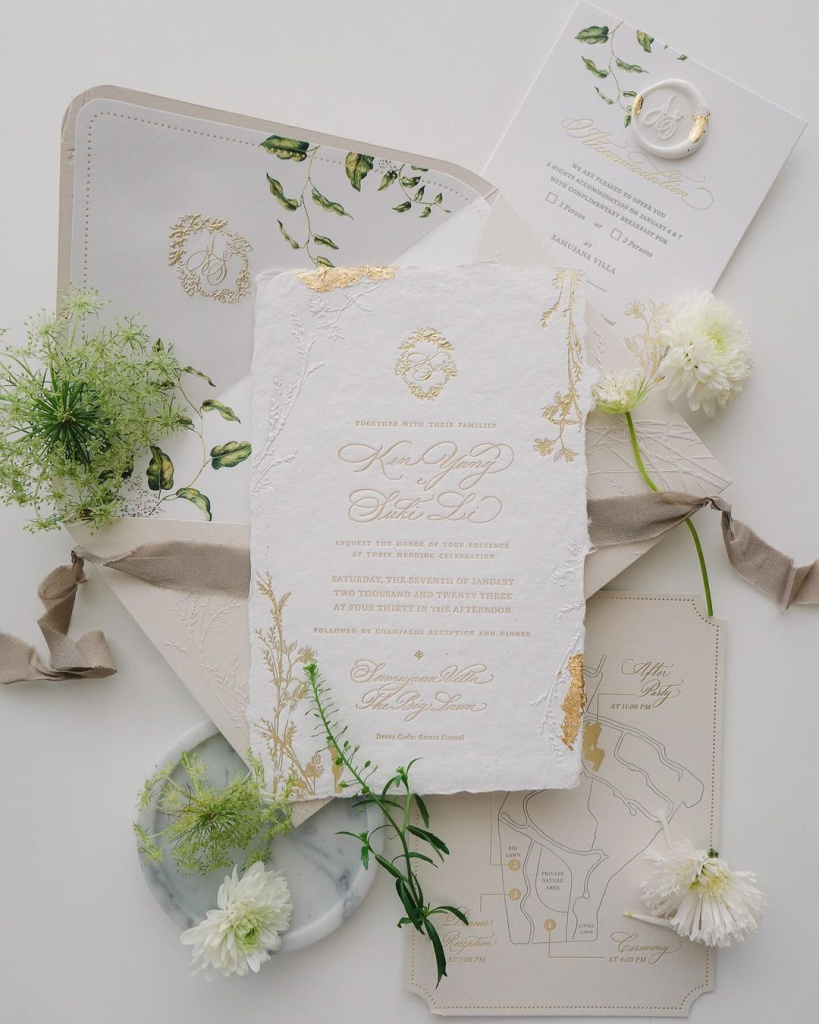
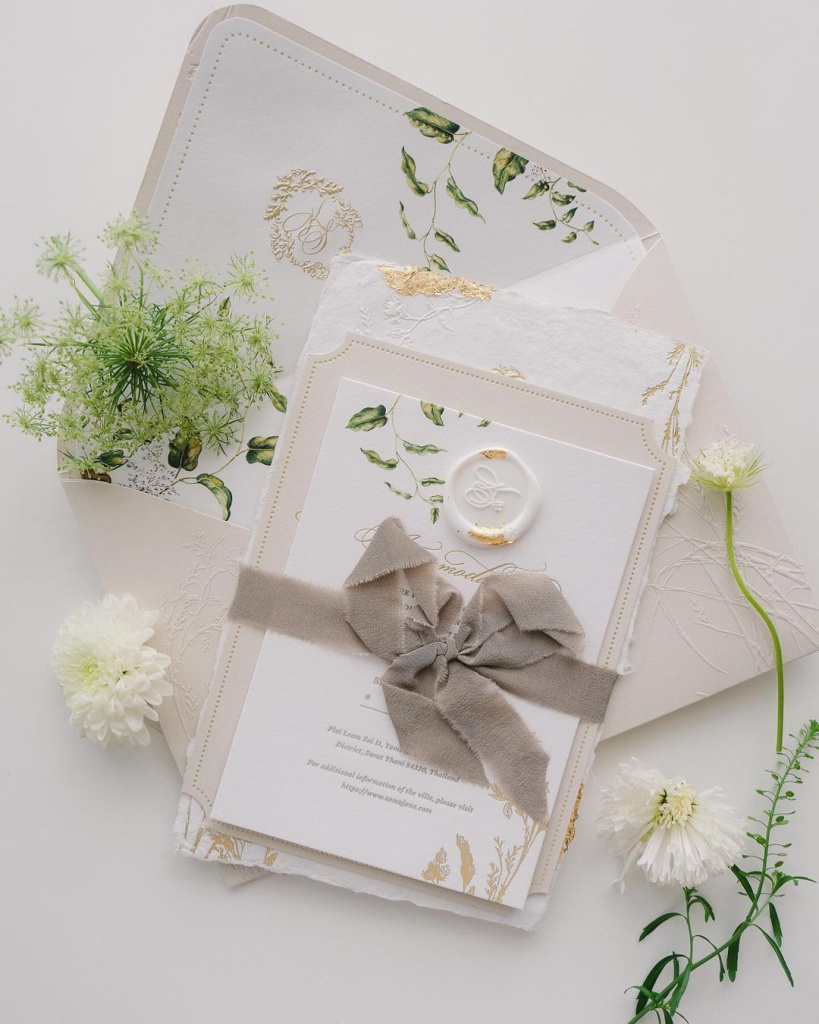
Every love story is unique, and so is every wedding. While we've covered the ideal timeline for sending out invitations, the truth is that there's no one-size-fits-all approach. Your perfect invitation schedule depends on a variety of factors that are specific to your big day. Think of these factors as the ingredients in your wedding planning recipe – each one adds its own flavor to the mix. Let's dive into the myriad of elements that could influence when you should send out those all-important invites.
Here's a comprehensive list of factors that might affect your invitation timeline:
Wedding Type
- Local vs. destination wedding
- Traditional vs. non-traditional ceremony
- Religious or cultural ceremonies requiring special preparations
Guest List Composition
- Proportion of local to out-of-town guests
- International guests needing visa arrangements
- Elderly guests who might need more time to plan
- Guests with young children or special needs
Wedding Date and Season
- Peak wedding season (usually summer) vs. off-season
- Holiday weddings
- Weekday vs. weekend weddings
Location and Accessibility
- Remote or hard-to-reach venues
- Limited accommodation options nearby
- Weddings requiring specific transportation arrangements
Guest Obligations
- Work schedules (e.g., teachers might need to plan around school year)
- Other wedding invitations your guests might have received
Wedding Size
- Intimate gatherings vs. large-scale events
- Complex seating arrangements requiring early RSVPs
Budget Considerations
- Time needed for guests to budget for travel and gifts
- Your own budget for rush fees if running late
Additional Events
- Pre-wedding events like showers or bachelor/bachelorette parties
- Post-wedding brunches or activities
Vendor Requirements
- Catering deadlines for final numbers
- Rental companies' timelines for adjustments
Invitation Complexity
- Custom-designed invitations requiring longer production time
- Assembly time for DIY invitations
Wedding Website and Online RSVPs
- Time needed to set up and test online systems
- Guest familiarity with technology
Legal or Administrative Requirements
- Marriage license waiting periods
- Requirements for guests (e.g., vaccinations for destination weddings)
Personal Preferences
- Your stress levels and planning style
- Family traditions or expectations
External Factors
- Postal service reliability in your area
- Potential for natural events (e.g., hurricane season)
Wedding Attire Expectations
- Time for guests to arrange formal wear rentals or purchases
- Cultural attire that may need to be specially ordered
Remember, these factors don't exist in isolation. They interplay with each other, creating a unique tapestry of considerations for your wedding. The key is to look at your specific situation and adjust your timeline accordingly.
Special Considerations for Destination Weddings

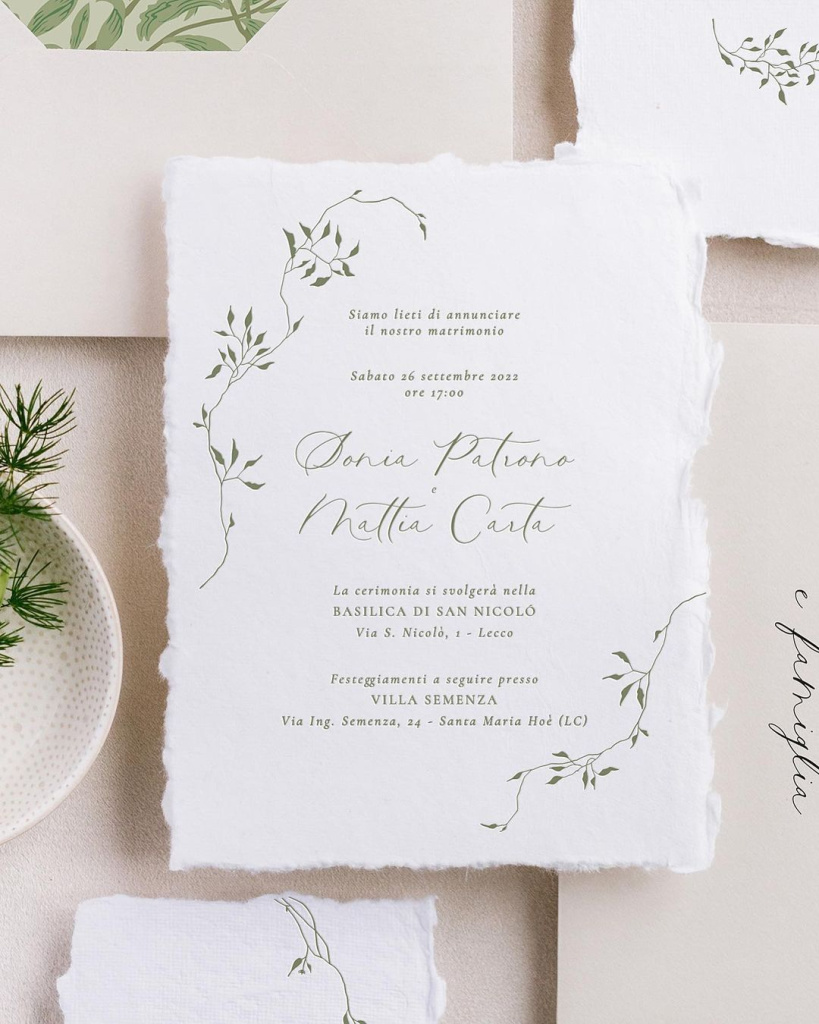
Destination weddings add an extra layer of excitement and complexity to your nuptial plans, and this extends to your invitation timeline as well. When you're asking guests to travel to a far-flung location to celebrate your love, you'll need to adjust your invitation strategy accordingly.
First and foremost, time is of the essence. Your guests will need significantly more notice to plan for a destination wedding than they would for a local event. This means sending out save-the-dates much earlier than usual – ideally 8 to 12 months before the big day. This early notification gives your loved ones ample time to request time off work, save up for travel expenses, and make necessary arrangements for children or pets.
Following the save-the-dates, you'll want to send out your formal invitations about 3 to 4 months before the wedding. This might seem early compared to local wedding standards, but it's crucial for destination events. The extra time allows guests to book flights and accommodations while options are still plentiful and potentially more affordable.
With destination weddings, your invitations need to do more heavy lifting in terms of information. In addition to the usual details, consider including a mini-guide to your chosen location. This could cover recommended accommodations, transportation options, and even suggestions for extending the trip into a vacation. Many couples create a dedicated wedding website for this purpose, using the invitation to direct guests there for comprehensive information.
Remember that your RSVP deadline should also be adjusted for a destination wedding. Aim for responses about 6 to 8 weeks before the event. This gives you time to follow up with any stragglers and provides a cushion for making final arrangements with vendors who may need firm headcounts.
Lastly, be prepared for a lower acceptance rate than you might expect for a local wedding. Destination weddings, while exciting, can be challenging for some guests to attend due to cost or logistical reasons. By providing ample notice and information, you're giving your guests the best chance to join you in your chosen paradise as you say "I do."
Addressing Common Invitation Timing Questions


Many couples find themselves wondering about the finer points of when to send what, and how to handle various scenarios. To help ease your mind and clarify some common confusions, we've compiled a list of frequently asked questions about wedding invitation timing.
Help! I'm Running Late with My Invitations!
Don't panic! While it's not ideal, it's not the end of the world. Send out electronic save-the-dates immediately to give guests a heads-up. Follow up with rush-ordered physical invitations as soon as possible. Personally reach out to VIP guests to ensure their attendance. Remember, it's better to send late invitations than to leave guests in the dark.
Is It Ever Too Early to Send Invitations?
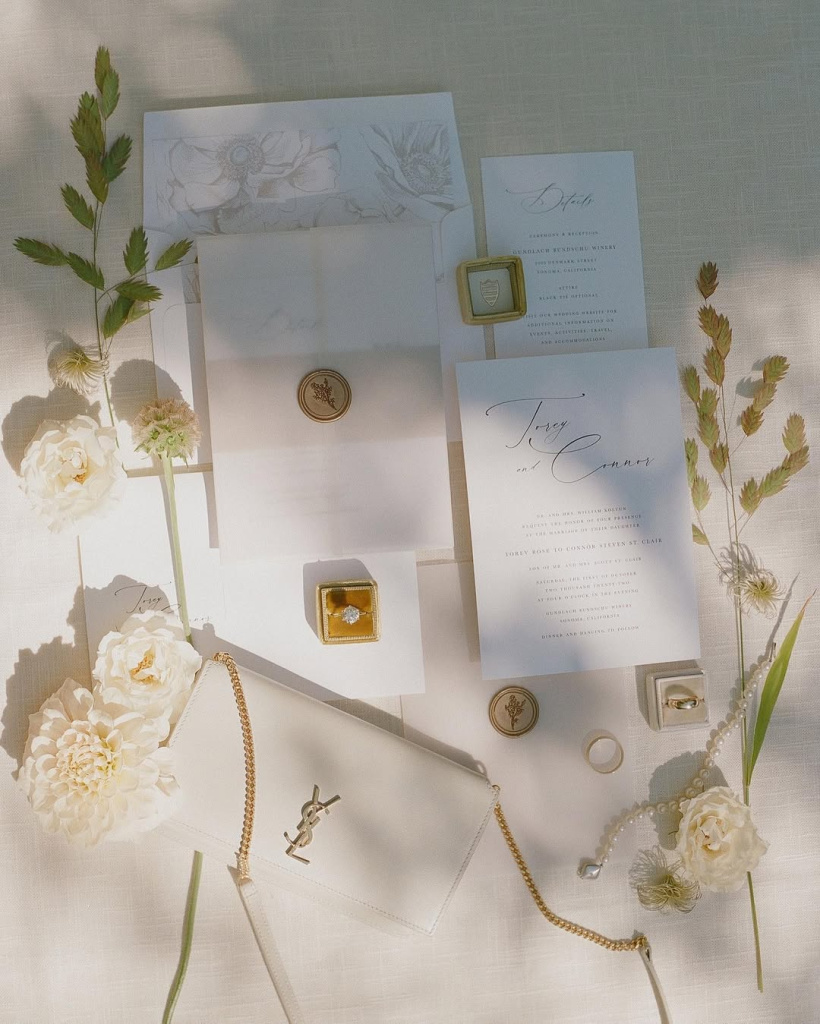
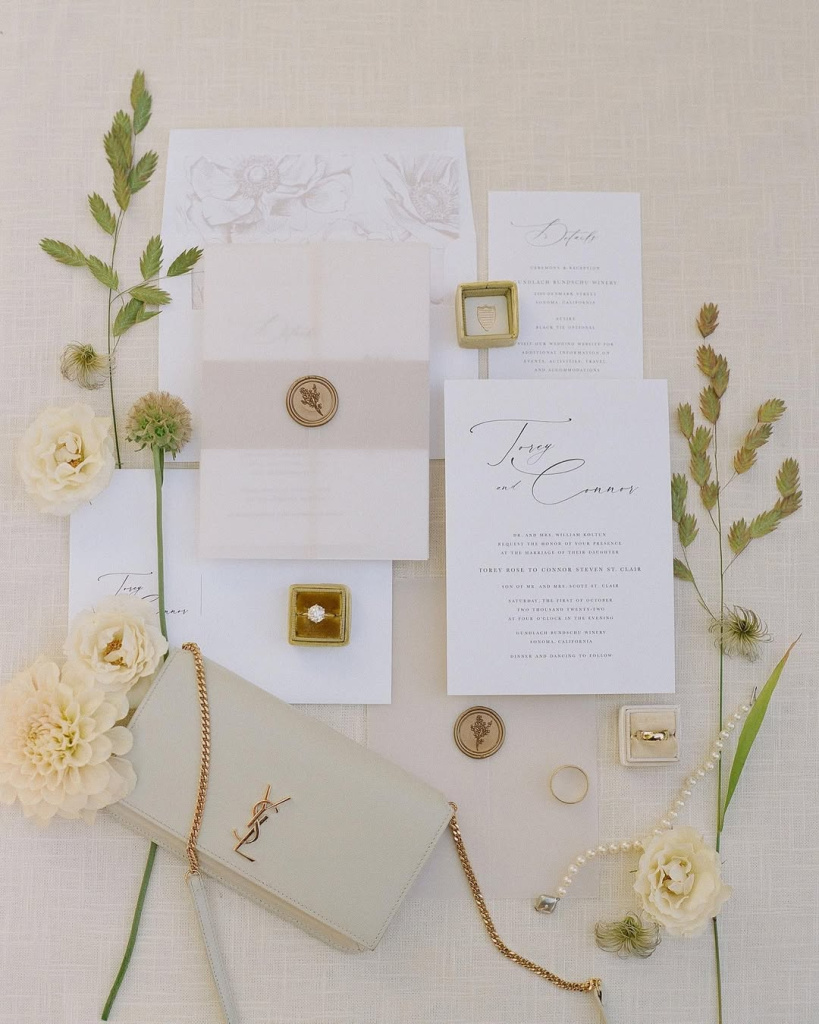
Yes, there can be such a thing as too early. For local weddings, sending invitations more than 4 months in advance might lead to guests forgetting about the event. However, for destination weddings or holiday dates, earlier is better. Stick to save-the-dates for very early notifications, and reserve formal invitations for closer to the event.
What About Last-Minute Invitees?
Life happens, and guest lists can change. For last-minute additions, send an invitation as soon as you decide to include them. Follow up with a personal call or message to explain the situation. Be understanding if they can't make it on short notice, and consider live-streaming the ceremony for those who can't attend in person.
Should I Set Different RSVP Deadlines for Different Groups of Guests?
While it might seem logical, it's best to avoid multiple RSVP deadlines as it can lead to confusion. Instead, set one deadline for all guests, making it early enough to accommodate those traveling from afar. You can always follow up personally with out-of-town guests if you need their responses earlier for travel arrangements.
What If Someone RSVPs After the Deadline?
Late RSVPs are a common headache for couples. Be prepared for this by building some flexibility into your final numbers. If someone RSVPs late, be gracious but honest about whether you can still accommodate them. If it's possible to include them, great! If not, explain the situation kindly and perhaps offer to celebrate with them separately.
Do I Need to Send Invitations to My Wedding Party?
Yes, you should still send formal invitations to your wedding party, even though they're already aware of the date. It's a nice keepsake for them and ensures they have all the same information as other guests. Plus, it's a lovely way to honor their special role in your big day.







